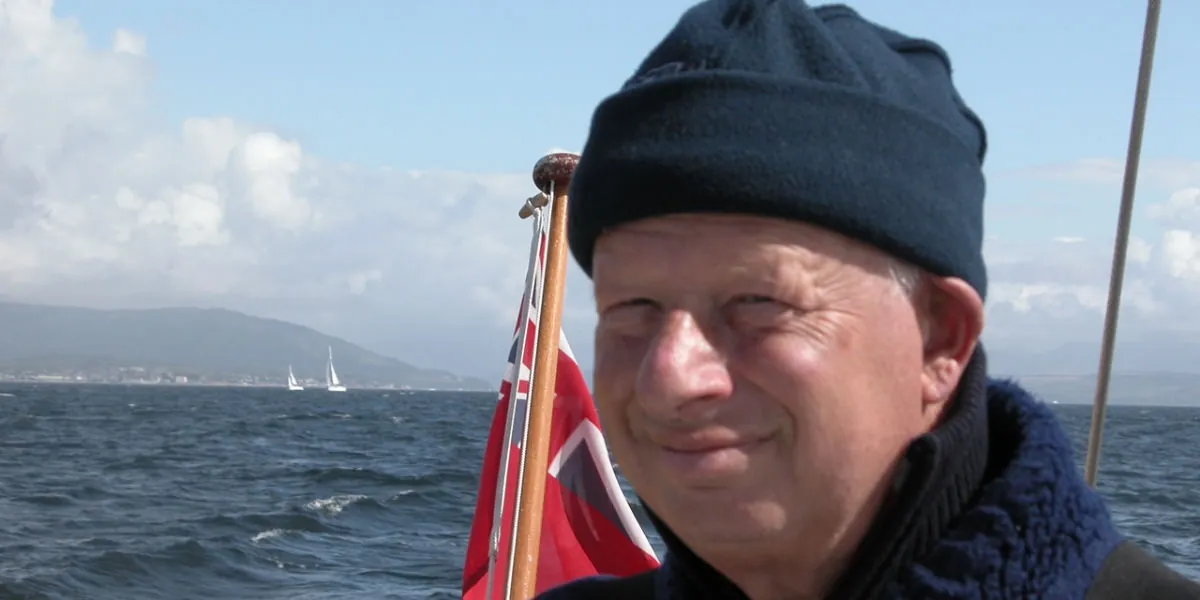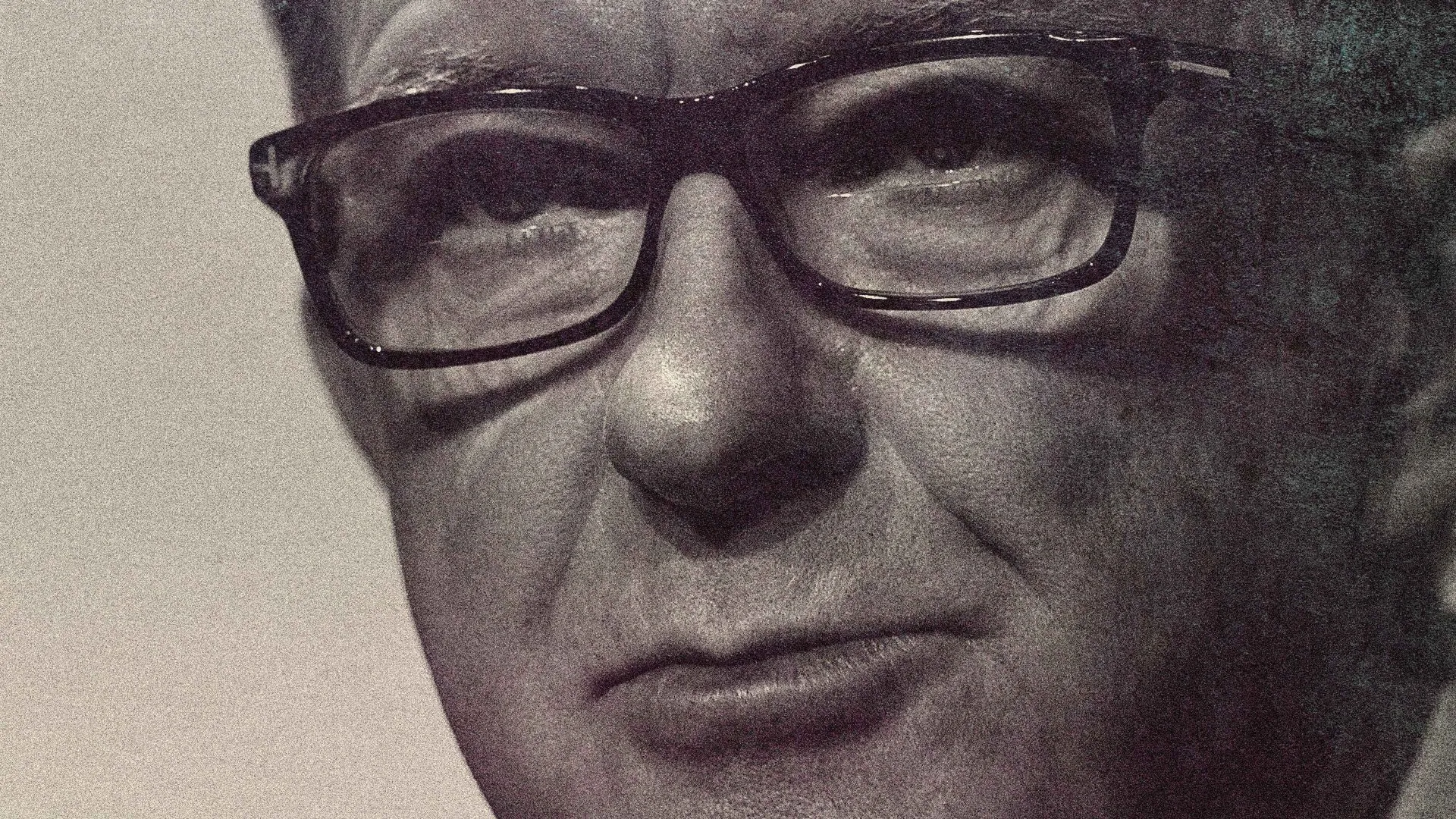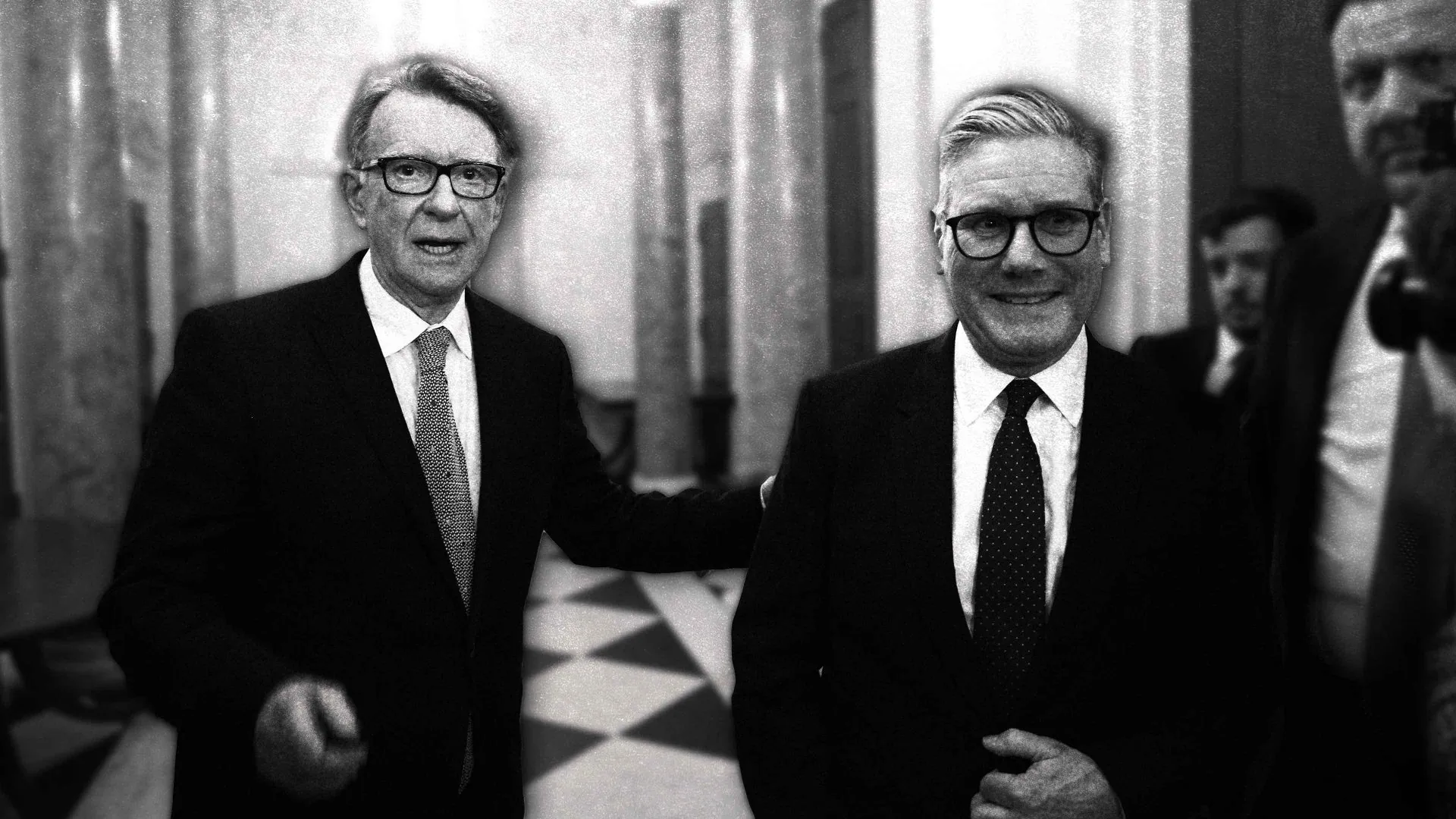Europe needs to get real on defence; Britain needs to get real on Europe
13 February 2025
Post
27 June 2022

Olympian legend Kelly Holmes, my friend and fellow mental health campaigner, was crying on TV last night, when an email popped into my inbox which had me joining her in tears. Perhaps it was her own emotional state, as she told the story on ITV of how she had stayed in the closet for so long, and was finally coming out as gay, that had me close to the edge anyway. But the email tipped me over.
It was from a complete stranger, Dr Douglas Russell. “Dear Alastair,” it began, “Please forgive this unsolicited e-mail, but I simply wish to pass on the sad news that Ernest Bennie died earlier today. I thought you might wish to know.”
The news pushed me over the edge to which Kelly had taken me because the man who had just lost his life had once saved mine.
I first met him in the spring of 1986, in a hospital in Paisley, to which I had been taken after being released from police custody after being arrested for my own safety, and where he was the duty psychiatrist. Here is my account of that meeting in my book on depression, Living Better.
... Dr Ernest Bennie had a calm, quiet voice, and his being Scottish helped put me at ease. He didn’t mind silence. He was happy to wait for answers.
Amid the possessions I had chucked on the floor of the council building in Hamilton, now returned by the police, was my A4 diary.
‘I notice you keep a diary,’ said Dr Bennie.
‘I do.’
‘Why do you do that?’
‘To record what I do with my life.’
‘And why do you do that?’
‘I don’t know, I always have.’
‘When did you start doing that?’
‘I have always written a lot. I used to write match reports of football matches I went to. I wrote to relatives in Scotland telling them what was happening in school. And when my Dad was in hospital after his accident, we couldn’t visit that often, so I sent him letters with my Mum every day. They were just accounts of my day. I think that is when the habit started.’
‘And let me ask you this . . . in your diary, would you ever make a note of how much you drink?’
‘No. Why would I do that?’
‘I don’t know.’ Silence.
More silence.
‘Do you think I should?’ I ask.
‘Should what?’
‘Record my drinking.’
‘I don’t know. I just wondered if you did.’ Silence.
‘No. But I could if you wanted me to.’
‘I wonder if we might take a few recent days, and try to track back, and establish whether you can recall how much you were drinking? Do you think you could do that?’
‘I suppose so.’
‘You will have to read to me. I can’t read a word of your writing.’ My diaries are a mix of longhand and shorthand micro-scribbles and the entries were especially micro in the run-up to mybreakdown.
‘Try that day,’ he said, as I flicked to an especially manic-looking Tuesday.
‘Woke up. Waited for F to go swimming. Went to the toilet. Threw up. Fuck! This is happening too often.’
‘What is happening too often?’
‘Throwing up in the morning. I think that is what I mean.’ Silence.
‘Go on.’
‘Into work. Meeting with Tony Holden [editor]. Still not hired enough staff but budget smashed. Briefed Geordie Greig[reporter] on a few ideas. Conference. To the Lord High Admiral . . .’
‘Which is?’
‘The office pub.’
‘I see. What time might this be?’
‘About eleven. Just after maybe.’ Silence.
‘Carry on.’
‘Back for a meeting, then back to LHA before going for lunch with David Mellor.’
‘The politician?’
‘Yes. Then it is just stuff about what we talked about– football, Thatcher blah, Nigel Lawson blah.’
‘And did you drink over lunch?’
‘Mmmm.’
‘Wine?’
‘Yes.’
‘Much?’
‘Maybe a couple of bottles.’
‘Mmmm. Go on.’
‘Then back to the office. Then a meeting in Vagabonds.’
‘Vagabonds?’
‘A drinking club.’
‘I see. What time are we now?’
‘Three-ish, maybe half-three.’
‘And what would you be drinking there?’
‘Usually half pints and Scotch chasers.’
‘How many?’
‘A few.’
‘Go on . . .’
But I didn’t need to. I’d got the point. A very large penny wasdropping in my head.
He made me go on anyway, to the after work session in the pub,several pints of beer and then onto Scotch again, and home aroundmidnight for another row.
He left me with my thoughts, and when he came back the nextday, I said to him I was going to try to stop drinking. And I did.
When, many years later, I made a documentary for the BBC about my breakdown, I tracked him down to a flat in Paisley, where he was living in retirement. He was aware, or at least had suspected, that the person he kept seeing on TV and reading about in the papers was indeed the Alastair Campbell he had been called out to after I arrived from the police station all those years ago.
I told him that his interventions in the ensuing days had been vital, and it was often as much about what he didn’t say as what he did.
He smiled. ‘Sometimes the successful interventions can be very,very brief, but the patient must make up his own mind, and be ready to do so.’
So that is why I say that he saved my life, and feel so sad that he has passed away. It is why I dedicated my first novel to him, All in the Mind, which is about the relationship between a psychiatrist and his patients.
Particularly today, with the NHS under such strain, and the government of austerity and populism constantly adding to that strain with their undermining of public service, the morale of health professionals is often low. But they should never lose sight of the amazing impact they can have on so many people’s lives. I know I will not be the only one who, on hearing the news that Dr Bennie has died, will feel sadness mixed with immense gratitude. Ours was very much a chance encounter, fairly brief, as he recalled, but for me, absolutely life-changing, and I will never forget him, nor his kindness and professionalism, and his gently leading me to the conclusion that the reason I was in a hospital bed had nothing to do with the paranoid fantasies that were going around my head in the police car, and everything to do with choices I had made, and changes I had to make in my own life and lifestyle.
Thank you, and RIP.
9 minute(s) read
Recent Posts

500. Japan, China, and the Fight for Taiwan (Question Time)
Are Japan and China closer to conflict over Taiwan, after the landslide victory for Japan's 'Iron Lady', Sanae Takayichi? Does Trump’s crumbling American-Hispanic vote explain his extreme reaction t... Continue12 February 2026
Posted by Alastair Campbell

Alastair Campbell’s diary: Am I still a friend of Peter Mandelson? It’s complicated
I find it hard to think he didn’t hear and see things that made him feel he had to get Epstein out of his life... Continue
11 February 2026
Posted by Alastair Campbell

499. Is It Game Over for Starmer?
As Starmer begins to lose his key aides and allies, is his departure from Number 10 now a matter of when, not if? Is the UK actually becoming ungovernable? Will the latest revelations about the level ... Continue9 February 2026
Posted by Alastair Campbell

I’m sleepless, angry and anxious over this – and I know I’m not alone
Editor-at-large Alastair Campbell on the reaction to the Mandelson affair, the calls for Starmer to go, and what happens to this government - and the United Kingdom - next... Continue
9 February 2026
Posted by Alastair Campbell

175. Ex-Director of GCHQ: China, Russia, and the Threats Facing the UK (Jeremy Fleming)
Do Russia or China represent a bigger risk to UK national security? Why are we underestimating the threat posed by cybercriminals? Who holds the real power - ministers or spies? Rory and Alastair are... Continue9 February 2026
Posted by Alastair Campbell

498. Alastair Reacts to Starmer-Mandelson Turmoil
How should the government and politics as a whole respond to the latest revelations about the scale of Epstein's influence, and Mandelson's abuse of power? If Starmer goes, who and what comes next? Do... Continue8 February 2026
Posted by Alastair Campbell

174. Taking On Europe’s Last Dictator: The Fight Against Lukashenko and Putin
How did Sviatlana Tsikhanouskaya go from being a housewife to leading a Belarussian government in exile? How did Aleksandr Lukashenko become the last dictator in Europe? Why was Segei, Sviatlana’s h... Continue6 February 2026
Posted by Alastair Campbell

497. Is Trump Plotting Regime Change in Iran? (Question Time)
Is Trump deliberately wielding chaos as a negotiating tactic with Iran? When did it become acceptable for world leaders to openly interfere in each other's elections, as seen with Orbán's internation... Continue5 February 2026
Posted by Alastair Campbell
I am a Glasgow trained physician who new Ernest and we collaborated on clinical trials in depression. He was so straightforward and to non Glaswegians “dour”. He could cut through the BS and concentrate on the important things as evidenced by your conversation.
I applaud your public discussions on mental illness and your candour about your own issues. I strongly believe that our society is so influenced by celebrities who are much maligned and trivialised yet their power can be directed in many positive directions as you are finding.
I appreciate your podcast with Rory and I prioritise it over listening the news.
Sincerely
Declan Doogan MD
PS I ran drug development for Pfizer and was heavily involved in psychiatric research for many year.
Indeed a special human being. Unassuming and caring. This was a strong blog to read on a number of levels. Beautifully written.
In sum, a human being talking about another who helped him overcome the demons he was experiencing.
Thanks for being open about depression. 10 years ago I lost my job through long term depression. You were indeed lucky to get such kindly help from a stranger. I received little helpful explanation from the NHS or paid private specialists. I am used to thinking about mechanical system problems and the rationale for the interconnections. I pondered the reason why performers performers like sportsmen and comedians frequently suffer. I eventually realised that depression was most likely a perfectly normal, remarkably clever, body defence mechanism to protect against prolonged and excessive stress. Short term cortisol release is good for survival, yet long term exposure is bad and leads to various physiological problems such as misery, constant mental rumination, over-eating. shimmering and weak muscles, erratic sleeping, memory loss, daily lack of confidence and general confusion. In short, your brain is wired to shut you down to protect you. Drinking drowns the feeling of misery temporarily, but doesn’t address the root cause. More consideration led me to the notion that mankind’s historical solution had relaxation through had been deep slow breathing, which stops the cortisol. I also noted that people walk which I assume is re-booting the body via gentle exercise. Open spaces offer fresh air and less likelihood of harm. Dogs are an unconditional friend that senses and responds to mood better than any human. I also note sleep deprivation and physical effects like sleep apnea worsen cortisol levels and, in turn, blood pressure. Not chasing about relentlessly and caring a little less helps, but that’s hard unless you withdraw from society. That attempt at escape is futile and compound the feeling of guilt and isolation. Nobody told me this stuff way back then. The feeling of personal struggle, desperation and loneliness was awful. I am pleased to note in the pandemic that it is now spoken about more openly and guidance offered. A further ten years on, I remain a rural carbuncle on the side of society, but I am alive and my family still love me. Look at the cartoon book ‘I had a Black Dog’ by Matthew Johnstone and give your partner ‘ Living with a Black Dog’; its by far the best summary I’ve seen and a relief to realise you are not alone. As people say rather too often these days,” I am a survivor!”…….in my case, just.